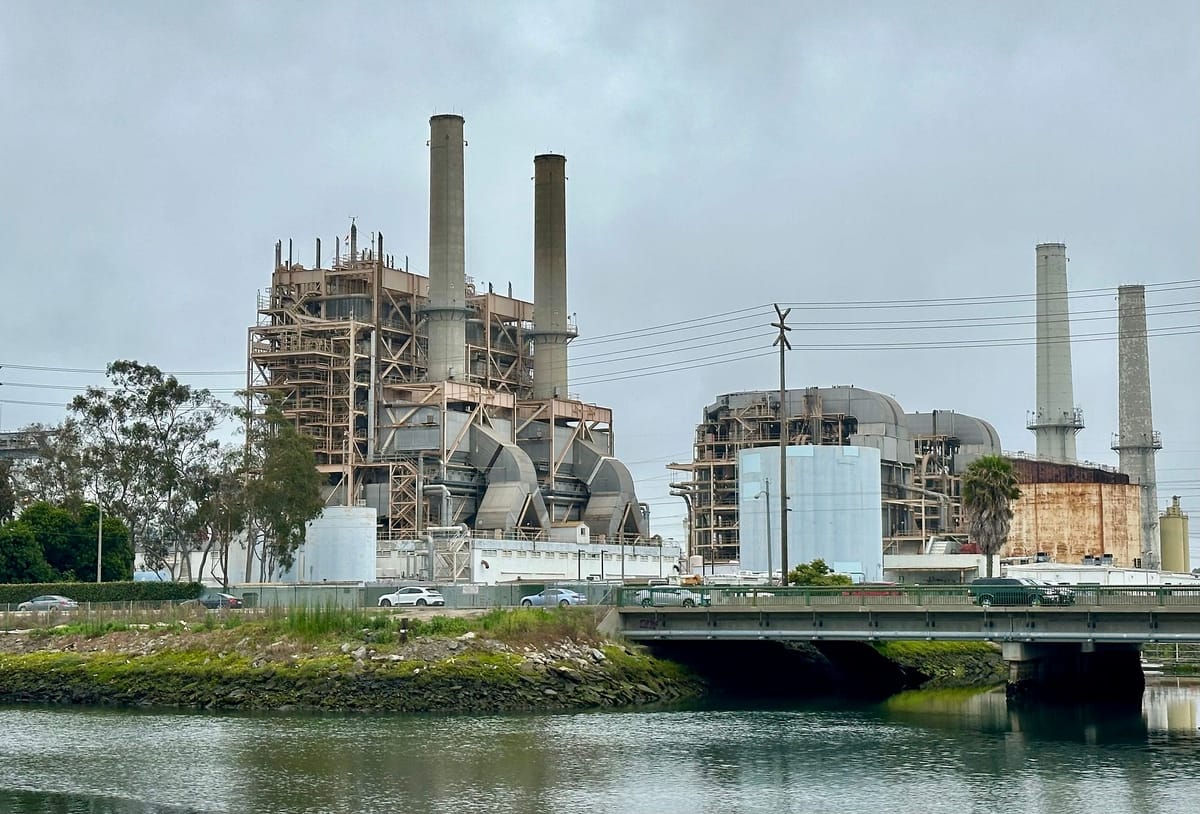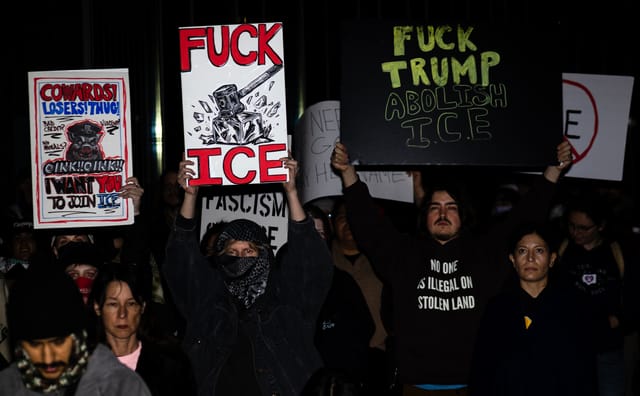Ending power plant tax exemption polls highest among potential Long Beach tax increases
Long Beach officials are considering a number of tax increases for the November ballot that could affect home sales, electricity bills and business license costs.

A new tax increase could be headed toward Long Beach voters’ ballots in November and the option that polled the highest in a city survey was unsurprisingly the one that would have the least impact on city residents.
The Long Beach City Council was presented with four potential options to raise revenue in the coming years including a doubling of the city’s business license taxes, increasing the fees charged to Southern California Edison to provide electricity to residents and raising a tax property owners pay after selling a home.
But the increase that had the most support is the proposed removal of an exemption two power plants operating in Southeast Long Beach have from a fee charged for using the city’s natural gas to create electricity.
Raising that rate to 5% would generate about $15 million annually for the city’s coffers and would affect two “taxpayers” in the city; the Alamitos Energy Center and Los Angeles Department of Water and Power, which produce power for customers outside of the city.
Getting rid of the exemption polled between 59% and 67% support, depending on if the people surveyed were supplied with additional information about the city’s projected budget woes in the coming years.
But raising taxes that would directly affect Long Beach residents or businesses polled lower.
About half of people polled said they’d support raising the city’s real estate transfer tax, which could require property owners to pay the city thousands of dollars after selling a property in the city. Depending on the rate selected by the city, that tax could generate between $12 million and $16 million annually.
Raising the electric franchise fee could raise about $21.5 million per year for the city but those costs would likely be passed along to customers and raise bills by about $30 per year, according to city officials. That received 36% support.
Jason Ruiz has been on strike from the Long Beach Post since March 21, yet he’s still covering city hall without pay. Thank him for his reporting.
A doubling of the city’s business license tax could raise $15 million per year but received just 44% support.
All three potential increases polled lower when voters were given additional information about the city’s budget, City Manager Tom Modica said Tuesday. Typically general tax measures require more than 50% of voter support to pass.
Modica said the city is doing another round of polling that will work on the wording of a proposed ballot measure, something that the City Council could vote on at its Aug. 6 meeting.
Long Beach is projecting a $23.5 million shortfall in the coming fiscal year that starts in October and over the next three years is looking at a $45 million funding gap.
That could get worse as oil money is phased out, potentially faster with the adoption of a new state law that could make it harder for oil operators to maintain wells near “sensitive areas” like homes, hospitals and parks.
Senate Bill 1137, which Californians will vote on in a November referendum, would affect about half of the wells in the city, according to Long Beach officials, and the prospect of it passing has already seen some planned wells abandoned like those expected to be drilled as part of a land swap deal that will restore the Los Cerritos Wetlands.
Since that deal was approved, nearly 1,300 residential units were approved within the 3,200-foot buffers that would go into effect if SB-1137 is upheld by voters.
Mayor Rex Richardson said planning for a future without oil money, which has benefitted the city for decades, is scary but a necessary task.
“We cannot pass this on to future generations,” Richardson said. “We have to act now while we still have time.”
Councilmember Kristina Duggan said she didn’t support raising business license taxes, noting that small businesses are already struggling and questioned the effect the real estate transfer tax increase would have on the market.
“This doesn’t encourage people to sell their house,” Duggan said.
She asked for more information about how oil money is being allocated so the community can have a better idea of what’s going to be affected.
But because the council is only scheduled to meet two more times before a potential vote to place a tax increase on the ballot, that information might not become public until the day of the vote.
The November election will already include at least one local tax measure that will affect Long Beach residents if it passes.
The countywide effort to repeal and replace Measure H, the homelessness tax that has helped Los Angeles County cities pay for housing and other services, would generate about $1.2 billion annually to fund homeless services and affordable housing.
But it would also result in Long Beach having the highest sales tax rate in the state.
Long Beach Watchdog is a reader-supported publication. To receive new posts and support our work, please consider subscribing.
We need your support.
Subcribe to the Watchdog today.
The Long Beach Watchdog is owned by journalists, and paid for by readers like you. If independent, local reporting like the story you just read is important to you, support our work by becoming a subscriber.





